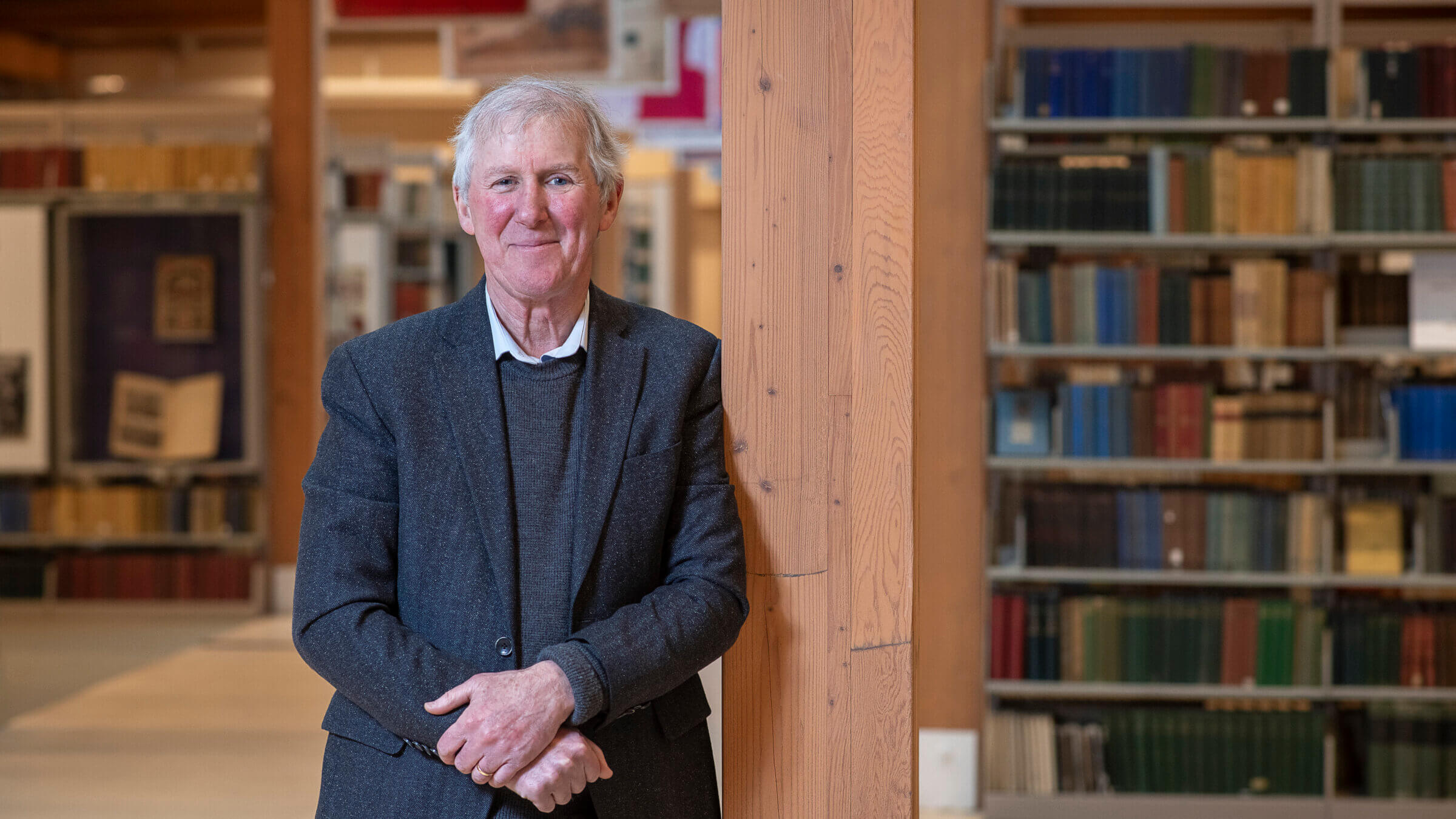Aaron Lansky, who rescued 1.5 million Yiddish books and founded the Yiddish Book Center, is retiring
He went looking for Yiddish books as a grad student. He ended up saving a whole world of literature, language and culture

Aaron Lansky is retiring from the Yiddish Book Center, which he founded. Photo by Ben Barnhart Photography
Aaron Lansky, who went looking for Yiddish books as a graduate student and ended up preserving the language and its culture with a collection of 1.5 million volumes, is retiring from the Yiddish Book Center that he founded in Amherst, Massachusetts, in 1980.
Lansky’s visionary work not only rescued hundreds of thousands of books that would otherwise have been relegated to landfills, but it helped spur a renaissance and appreciation of Yiddish language, literature and culture.
Lansky will step down from his role as president of the center in June 2025 but will remain for two years as senior adviser to the institution he created. Susan Bronson, the center’s executive director, will succeed him as president.
“When all is said and done, I was able to act on my dreams, save a literature, and reclaim a culture, and that, I think, makes me one of the world’s luckiest people,” Lansky said in a statement from the Yiddish Book Center, which announced his retirement Tuesday.
Books in dumpsters, basements and garages
Lansky’s quest began in 1980 when he was a 23-year-old graduate student at McGill University in Montreal. He was desperate to find Yiddish books to further his research in Eastern European Jewish studies.
He took a two-year leave of absence from school to recover books that were being discarded — by libraries that didn’t want them, Jews who couldn’t read them, and immigrants and Holocaust survivors who were grateful to find a home for their treasured tomes. Scholars initially estimated that 70,000 books were out there, waiting to be found, but Lansky recovered that many in just six months.
In his memoir, Outwitting History: How One Man Rescued a Million Books and Saved a Civilization, he recounted collecting books, with the help of volunteer collectors called zamlers, from dumpsters, basements and garages, on trips to Cuba and Russia, and from countless elderly Jews who fed him kugel and tea before tearfully sending him on his way with their beloved books.
In a phone interview with the Forward, Lansky said his retirement plans include reading, writing and teaching. “I said for years when I was hauling all those books, it would be nice to have time to read them,” he said. “I would really love to write again and go back to teaching and all the intellectual pursuits I put on hold when I dropped out of grad school to start all of this.”
Expanding the center’s work

The book center has grown into an internationally renowned institution promoting Yiddish not only through the written word but through oral history, educational and cultural programming, exhibitions, music festivals, publishing ventures and a Yiddish language-learning textbook. And Lansky’s preservation efforts have continued into the 21st century with digitized versions of Yiddish books that have been downloaded more than 5 million times.
Lansky won a MacArthur “genius” award in 1989. The center has also received numerous honors, including the prestigious National Medal for Museums and Libraries, awarded during a ceremony at the White House in 2014.
In 1997, a new National Yiddish Book Center opened on the campus of Amherst’s Hampshire College, where Lansky got his undergraduate degree. The center was designed as an expansive permanent home for the collection and related programs.
Among the center’s latest projects, a new generation of translators is now working on English-language versions of some of the Yiddish texts, and a collaboration with the National Library of Israel, YIVO and the New York Public Library is underway to put all of the center’s Yiddish books online. “We’re calling it the universal Yiddish library,” Lansky said, “putting all of our respective holdings in a single repository so everyone in the world will have access, 24 hours a day, free of charge.”
























